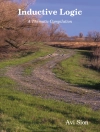The relationship between anthropologists’ ethnographic investigations and the lived social worlds in which these originate is a fundamental issue for anthropology. Where some claim that only native voices may offer authentic accounts of culture and hence that ethnographers are only ever interpreters of it, others point out that anthropologists are, themselves, implanted within specific cultural contexts which generate particular kinds of theoretical discussions. The contributors to this volume reject the premise that ethnographer and informant occupy different and incommensurable “cultural worlds.” Instead they investigate the relationship between culture, context, and anthropologists’ models and accounts in new ways. In doing so, they offer fresh insights into this key area of anthropological research.
Table of Content
Acknowledgements
Introduction: Culture, context and anthropologists’ accounts
Deborah James and Christina Toren
Chapter 1. Alliances And Avoidance: British Interactions with German-Speaking Anthropologists, 1933–1953
Andre Gingrich
Chapter 2. Serving the Volk? Afrikaner anthropology revisited
John Sharp
Chapter 3. ‘Making Natives’: debating indigeneity in Canada and South Africa
Evie Plaice
Chapter 4. Culture in the Periphery: Anthropology in the Shadow of Greek Civilisation
Dimitra Gefou-Madianou
Chapter 5. Culture: the Indigenous Account
Alan Barnard
Chapter 6. We are All Indigenous Now: Culture vs. Nature in representations of the Balkans
Aleksandar Bošković
Chapter 7. Which cultures, what contexts, and whose accounts? Anatomies of a moral panic in Southall, multi-ethnic London
Gerd Baumann
Chapter 8. “What about White People’s History?” Class, Race and Culture Wars in 21st Century Britain
Gillian Evans
Chapter 9. A Cosmopolitan Anthropology?
Stephen Gudeman
Chapter 10. The door in the middle: six conditions for anthropology
João de Pina-Cabral
Chapter 11. Adam Kuper: An Anthropologist’s Account
Isak Niehaus
Notes on Contributors
References
Index
About the author
Christina Toren is Professor of Social Anthropology at the University of St Andrews. Her fieldwork areas are Fiji and the Pacific, and Melanesia, and her theoretical interests include exchange processes; spatio-temporality as a dimension of human being; sociality, kinship and ideas of the person; the analysis of ritual; epistemology; ontogeny as a historical process. Her books include Making Sense of Hierarchy: cognition as social process in Fiji (Athlone, 1990) and Mind, Materiality and History: Explorations in Fijian Ethnography (Routledge, 1999).












